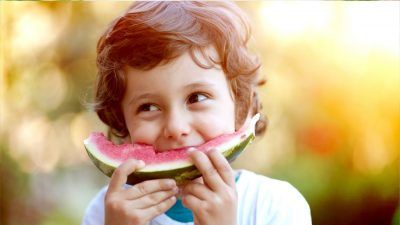Supplements for vegan children

A vegan diet can give your child the healthiest start to life and thousands of thriving vegan babies, children and teenagers are proving it. Vegan children who eat a varied, healthy diet get almost all of the essential nutrients from foods alone. Our guidelines explained in How to make healthy vegan meals and snacks for kids offer an easy template to follow. However, there is a couple of nutrients that children need to receive in the supplement form and a few to watch.
All health experts and organisations agree that it’s absolutely necessary to give vitamin D and vitamin B12 supplements to vegan children of all ages. While it’s very difficult to get enough of vitamin B12 from foods only, it’s even harder with vitamin D. That’s why we need to rely on supplements.
Vitamin B12
Following intakes are recommended for daily Vitamin B12 supplementation:
Babies and children up to three years – 5 micrograms
Children from four to ten years – 25 micrograms
Children older than ten years – 50 micrograms
These amounts are higher than the recommended daily intakes because we don’t absorb all the B12 from supplements, so the higher doses ensure a sufficient intake.
Vitamin D
Following intakes are recommended for daily Vitamin D supplementation:
Breastfed babies – 8.5-10 micrograms (10 µg = 400 IU – units often used on supplements)
Formula-fed babies – none as infant formulas have to contain vitamin D
Toddlers and older children, including teenagers – 10 micrograms
Some authors recommend higher doses from 12 months onwards – 15-38 micrograms (600-1,500 IU) but high intakes can be dangerous so the very high doses should only be used in cases of deficiency.
There are a few other nutrients to watch and, depending on what and how your child eats, it’s up to you to decide whether they need a supplement.
Iodine
Iodine, found mainly in seaweed, can be tricky – children and adults alike can get too little or too much of it so it may best to use a kelp supplement a few times a week. Children up to four years need 75 micrograms, older ones and teenagers need 150 micrograms. If you live in a country where iodised salt is the norm, you most likely don’t need to use supplements.
Iron, zinc and calcium
This trio of minerals often pops up in debates about vegan children. However, children who eat enough in general and have a healthy diet should have a sufficient supply. Research shows that vegan children usually get enough of iron and zinc, while calcium intake may be lower than optimal so it’s important to make sure your kid gets enough (Alexy et al., 2021). Give them calcium-fortified plant drinks (such as calcium-fortified oat or soya milks) and fortified cereal products, include leafy green veggies, tofu, almonds, dried figs and tahini in their daily diet. If your child is so picky that you worry about their nutrient intake, it may be best to give them a children’s multivitamin/mineral supplement with all the above nutrients.
Omega-3 fats
Omega-3s are essential to every child’s development and health. Rich sources are flaxseed, hempseed, chia seeds and walnuts – and oils made from them (always use these cold because their omega-3s get destroyed by heat). The best oil to use for cooking is rapeseed oil – it withstands higher temperatures better and is a good source of omega-3s.
If you have a baby under 12 months but already eating some solids, give them a teaspoon of flaxseed oil daily to top up their omega-3s.
Toddlers, aged 1-3, have higher needs so they should get a supplement containing 100 mg of DHA omega-3 fat daily. Make sure it’s a supplement made from algae and not fish oil!
Older children don’t need a supplement if they receive their daily omega-3 dose from one teaspoon of flaxseed oil, one tablespoon of ground flaxseed or chia seeds, two tablespoons of hempseed or ten walnut halves. If your child doesn’t eat these foods, they will need a supplement!
For more information on fats, see the Nutrients section.
Many parents choose to give their child a multivitamin/mineral supplement to cover all bases. If you’re concerned that your child is not eating enough nutritious foods, it might be a good idea to give them a multi-supplement. However, it won’t make up for a diet lacking in energy or fresh foods. It’s always better for any child to have a diet that’s as nutritious as possible and only top up critical nutrients, such as vitamins B12 and D, iodine and omega-3s.
Don’t forget that children’s nutrient requirements change with age and the same applies to energy intake – they need to eat a lot! For guidance on how to make sure they eat well, see How to make healthy vegan meals and snacks for kids.







